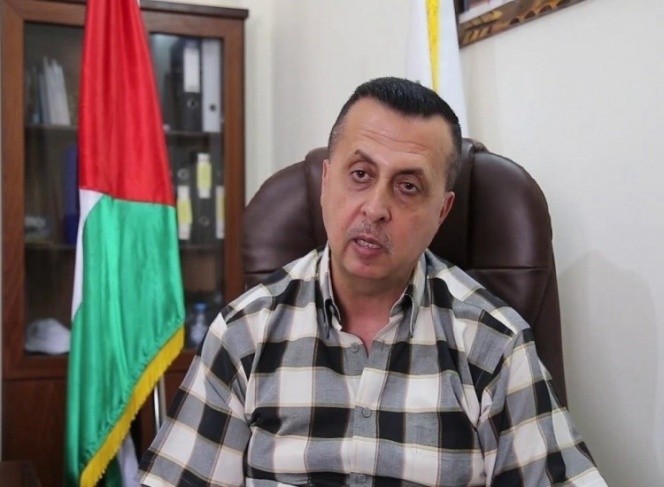During the genocide war waged by the Israeli occupation against the Gaza Strip, Palestinian civil society organizations played a vital role in supporting our people—each within its area of expertise—across multiple fields, including humanitarian relief (both food and health), education, psychosocial support, and youth, women, and child empowerment, among others.
Despite the devastating circumstances, these organizations continued their work according to their specializations. The network of NGOs and human rights organizations managed to adapt to the brutal and inhumane conditions imposed by the occupation—conditions that exceeded, in their savagery and scope of destruction, the atrocities witnessed during World War II, including acts of genocide and ethnic cleansing.
This adaptability was demonstrated through the establishment of temporary offices in the central and southern areas of Gaza, the rehabilitation of damaged headquarters after the ceasefire, and the resumption of regular sectoral meetings. The NGOs also strengthened their engagement with relevant international bodies—both United Nations agencies and international non-governmental organizations.
Human rights organizations, in particular, continued their professional documentation of violations and deepened their relations with international solidarity movements. They pursued accountability for war crimes and crimes against humanity committed by the occupation, following up on rulings and proceedings of both the International Court of Justice and the International Criminal Court. These collective efforts contributed politically to the growing international recognition of the State of Palestine under international law.
Post-Ceasefire Phase:
Following the ceasefire—despite its fragility—Palestinian civil society organizations intensified their activities with renewed energy and determination. They worked across their respective fields to promote community recovery, rebuild hope, and strengthen resilience, all while confronting the occupation’s new form of warfare that includes restricting humanitarian aid, delaying phases of redeployment, and carrying out selective attacks under false pretexts.
Certainly, civil society organizations alone cannot face these immense challenges, especially given the massive destruction. The reconstruction process is estimated to cost around 70 billion USD. Nevertheless, these organizations can identify key challenges and priorities and help alleviate the burdens to the extent of their capabilities.
Current Priorities of Civil Society Work:
The priorities of civil society are inseparable from the broader national priorities—primarily ensuring that the ceasefire holds, exerting pressure on the occupation to allow the flow of aid, implementing new phases of redeployment, and providing the minimum conditions for life to prevent (voluntary) migration, which would in fact be forced displacement. Another urgent priority is to accelerate reconstruction under a Palestinian national framework, independent of foreign tutelage or exploitative agendas such as the Rikera Project once proposed by former U.S. President Trump—a plan that poses serious risks of displacement and economic exploitation of Gaza’s resources at the expense of its indigenous population.
While the formation of a technical and professional technocratic committee may be useful in service provision, humanitarian relief, and early recovery efforts, it is essential that this committee remains part of the unified Palestinian system. This ensures that Gaza is not administratively separated from the West Bank and that this model is not replicated in fragmented areas of the West Bank—an outcome that could undermine international recognition of the State of Palestine as a single political, geographical, and legal entity under international law.
One of the key roles that civil society must focus on at this stage is promoting civil peace and social cohesion. The Palestinian community—particularly in Gaza—needs diverse community-led initiatives (youth, women, and others) aimed at safeguarding civil harmony by fostering a culture of dialogue and peaceful conflict resolution instead of violence and exclusion. It is also crucial to develop mechanisms for gradually rebuilding the justice system to resolve disputes legally, avoiding revenge and vigilantism. This would lay the foundation for a justice system rooted in transitional justice principles, including reparation, compensation, reconciliation, and forgiveness.
In conclusion:
It is time to strengthen the leadership role of Palestinian civil society organizations during the recovery and early rehabilitation phases. Their perspectives and priorities—derived from the needs of marginalized and vulnerable groups and from the community at large—must be reflected in recovery and early rehabilitation plans currently being developed by international organizations, especially those affiliated with the United Nations.
Enhancing the partnership philosophy between international agencies and Palestinian civil society is not merely a demand—it is a necessity. Such collaboration is vital across humanitarian, empowerment, and reconstruction efforts, as experience has shown that local leadership ensures the preservation of social cohesion and provides a community safety net during and after crises. This is especially crucial now, as our people face an existential threat following two years of genocidal warfare. The risks and challenges remain immense—but so does the resilience and determination of our people.
The End.


Add New Comment